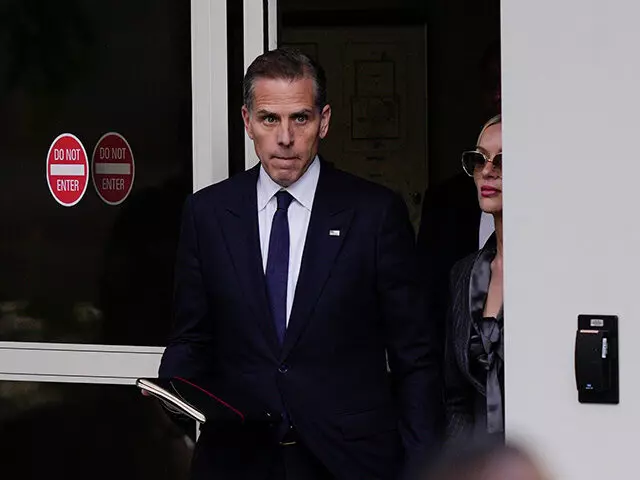The trial for the alleged firearms offenses of Hunter Biden, son of President Joe Biden, has now come to a close with the jury beginning their deliberations this Monday afternoon in Delaware. If convicted on all counts, Hunter faces up to 25 years in prison and fines totaling $750,000, according to court documents.
The charges against him include one count of making false statements regarding the purchase of a firearm, one count of possession of a firearm by an individual who is an unlawful user of or addicted to a controlled substance, and one count of submitting false information for a background check conducted by a licensed federal firearms dealer. The allegations stem from incidents wherein Hunter purchased a gun while under the influence of crack cocaine and subsequently discarded it in a public trash can near a school. It is also reported that the Secret Service intervened in the investigation of this incident.
Before the jurors were excused to begin deliberation, the prosecution presented their case, arguing that Hunter was an unlawful user of controlled substances and was aware of his addiction. Prosecutor Leo Wise referred to specific evidence that suggested Hunter was using drugs during October 2018, including messages from his own phone and entries in his memoir published in 2021.
The evidence was personal, it was ugly, it was overwhelming,” Wise stated, according to court reporters. It was also absolutely necessary.
He continued by emphasizing that “no one is above the law,” reiterating a central theme of the prosecution’s case. Wise also displayed a calendar to the jury illustrating the timeline of the evidence presented during the trial and showed a PowerPoint presentation featuring headlines like “drug messages,” “addiction messages,” “drug paraphernalia,” and “cash withdrawals.
The defense team’s closing arguments sought to paint Hunter as a victim of addiction, as they did in their opening statements. Defense attorney Abbe Lowell questioned whether Hunter “knowingly” committed wrongdoing and argued that admitting he was an addict in his 2021 memoir does not necessarily mean he knew he was an addict back in 2018.
With this very high burden, it’s time to end this case,” Lowell stated, according to court reporters. Reasonable doubt is not suspicion or conjecture.” Lowell’s closing argument lasted approximately 85 minutes.
The case is currently being referred to as United States v. Hunter Biden, No. 24-1703, and is being heard in the United States Court of Appeals for the Third Circuit. Wendell Husebo is a political reporter with Breitbart News and a former GOP War Room Analyst. He is also the author of Politics of Slave Morality and can be followed on Twitter at @WendellHusebø or on Truth Social at @WendellHusebo.

